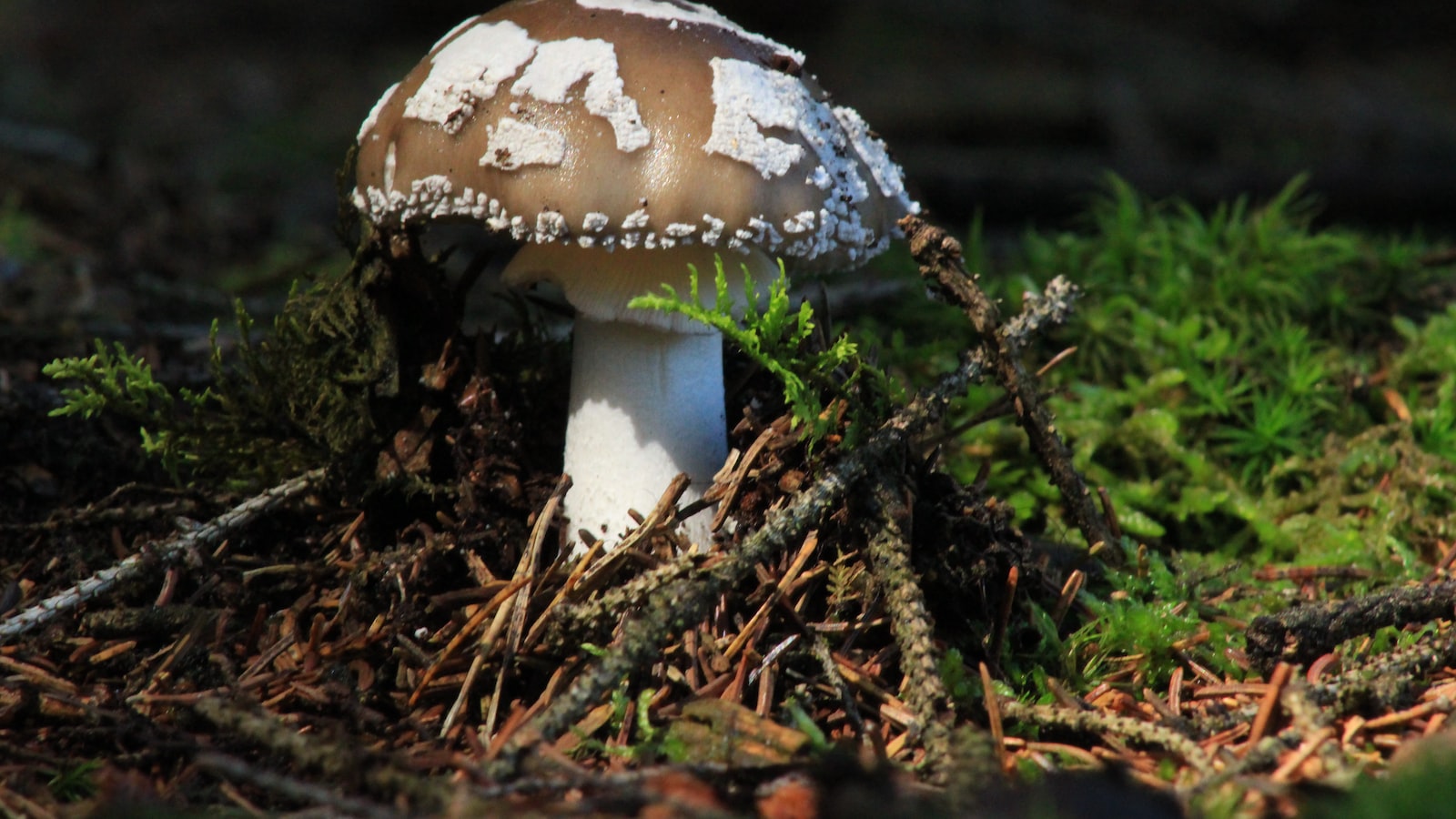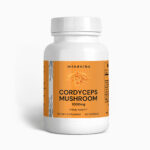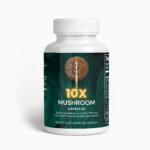
“Can Lion’s Mane Mushroom Really Improve Your Mood? Let’s Explore”
When it comes to improving mood, traditional medication and therapy are not always the answer. Nowadays, people are turning towards natural remedies to help boost their emotional well-being and overall mental health. One of the most talked-about options lately is the Lion’s Mane Mushroom, a type of medicinal fungus that has been praised for its potential benefits for a range of ailments, including anxiety and depression. But, does it really work, or is it just another overhyped wellness trend? In this article, we’ll explore what science has to say about Lion’s Mane Mushroom and its effects on mood.
1. Introduction: The Power of Lion’s Mane Mushroom and Its Potential Health Benefits
Lion’s Mane Mushroom, also known as Hericium erinaceus, has been recognized for its medicinal properties since ancient times in China and Japan. Recently, this unique fungus has gained popularity worldwide for its potential health benefits. This article introduces the power of Lion’s Mane Mushroom and its potential health benefits that could prove to be beneficial for overall well-being.
The mushroom is native to Asia, Europe and North America and possesses multiple health benefits. Lion’s Mane contains bioactive substances, important for cognitive and immune functions. The primary active ingredients that make Lion’s Mane a powerful supplement are polysaccharides and beta-glucan. Polysaccharides are complex carbohydrates that help boost the immune system while beta-glucan stimulates the body’s natural killer cells to fight viruses, inflammation, and tumors.
Research has indicated the potential health benefits of Lion’s Mane. It has been observed to boost cognitive function, enhance nerve regeneration, improve mental health, and heart health. Additionally, it has been found to contain properties that may help in the prevention of cancer. These studies have shown that Lion’s Mane Mushroom could be one of the most powerful superfoods available today. Due to its potential benefits, many people have started incorporating this superfood into their diet to improve their overall health and well-being.
2. The Science Behind Lion’s Mane Mushroom and Its Effect on Mood
The Lion’s Mane mushroom, or Hericium erinaceus, is a type of edible fungus that has been used for centuries in traditional Chinese medicine and cuisine. Recent scientific research has shown that this unique mushroom has a variety of potential health benefits, including improving mood.
One reason why Lion’s Mane may affect mood is because it contains compounds called erinacines and hericenones, which are believed to stimulate the production of nerve growth factor in the brain. This protein is essential for the growth and maintenance of neurons, and has been shown to improve cognitive function and mood in animal studies.
In addition, some research suggests that Lion’s Mane may reduce inflammation in the body, which is often associated with depression and other mood disorders. This mushroom is also rich in antioxidants, which can protect the brain from oxidative stress and damage caused by free radicals. Overall, the scientific evidence suggests that Lion’s Mane may be an effective natural mood enhancer, with few side effects and a long history of safe use.
3. How Does Lion’s Mane Mushroom Work to Improve Your Mood?
Lion’s Mane Mushroom is an excellent natural remedy for boosting your mood and overall mental health. Several studies have demonstrated the mushroom’s ability to reduce symptoms of depression and anxiety. But how does it work? Here are three ways that Lion’s Mane Mushroom can improve your mood:
1. Promotes Neuroplasticity: Lion’s Mane Mushroom contains compounds that can stimulate the growth of new neurons, also known as neuroplasticity. This phenomenon can help our brains to adapt to new situations and emotions, leading to better mood regulation. By promoting the growth of new brain cells, Lion’s Mane can improve cognitive function, concentration, and memory recall.
2. Regulates Serotonin Levels: Serotonin is a neurotransmitter that helps regulate mood and social behavior, among other functions. Low levels of serotonin have been linked to depression and anxiety. Lion’s mane can help regulate serotonin levels by inhibiting monoamine oxidase activity, an enzyme involved in the breakdown of serotonin. By balancing serotonin in the brain, Lion’s Mane can help elevate your mood and reduce symptoms of anxiety and depression.
3. Lowers Inflammation: Inflammation is a natural response to injury or infection. However, chronic inflammation has been linked to several mental health conditions, including depression and anxiety. Lion’s Mane Mushroom has anti-inflammatory properties that can help reduce inflammation in the brain and other parts of the body. By reducing inflammation, Lion’s Mane can improve your mental health, reduce stress levels, and elevate your mood.
Overall, Lion’s Mane Mushroom is an excellent natural supplement for improving your mood and overall mental health. Whether you are dealing with symptoms of depression and anxiety or simply looking for a natural way to elevate your mood, Lion’s Mane can help. Try incorporating this powerful mushroom into your diet today!
4. The Benefits of Consuming Lion’s Mane Mushroom for Mental Health
Have you ever heard of Lion’s Mane Mushroom? It’s a medicinal mushroom with various health benefits. In recent years, it has gained popularity among health enthusiasts for its ability to promote mental health. Here are some of the benefits of consuming Lion’s Mane Mushroom:
- Reduces anxiety and depression: Lion’s Mane Mushroom contains compounds that have neuroprotective effects. Studies suggest that consuming this mushroom can reduce symptoms of anxiety and depression, which can improve mental well-being.
- Improves cognitive function: Lion’s Mane Mushroom contains compounds that stimulate the production of nerve growth factors. These factors are essential for the growth and maintenance of neurons, which can improve cognitive function, memory, and concentration.
- Protects against neurodegenerative diseases: Lion’s Mane Mushroom contains compounds that have antioxidant and anti-inflammatory properties. These properties can protect neurons from damage, which can reduce the risk of neurodegenerative diseases such as Alzheimer’s and Parkinson’s.
Overall, consuming Lion’s Mane Mushroom can have significant benefits for mental health. It is available in various forms, including capsules, powders, and extracts. If you’re looking to improve your mental well-being, consider adding Lion’s Mane Mushroom to your diet. However, it’s important to consult with your healthcare provider before taking any supplements.

5. Evidence of the Positive Effects of Lion’s Mane Mushroom on Mood
Research has shown that Lion’s Mane Mushroom has positive effects on mood and cognitive function. Here are some pieces of evidence that support these claims:
- Reduces symptoms of anxiety and depression: A study published in the Journal of Ethnopharmacology found that Lion’s Mane Mushroom extract had anxiolytic and antidepressant effects in mice. Another study in human subjects showed that supplementation with Lion’s Mane significantly improved symptoms of depression and anxiety compared to a placebo group.
- Enhances cognitive function: Animal studies have shown that Lion’s Mane extract improves memory and learning. A human study published in Phytotherapy Research found that taking Lion’s Mane for four weeks improved cognitive function in elderly individuals with mild cognitive impairment.
- Boosts overall well-being: In addition to improving mood and cognitive function, Lion’s Mane has also been shown to have anti-inflammatory and antioxidant properties. These properties can support overall health and well-being.
While more research is needed to fully understand the effects of Lion’s Mane Mushroom on human health, the existing evidence is promising. If you’re looking for a natural way to support your mood and cognitive function, it may be worth giving Lion’s Mane a try.
6. Preparing and Incorporating Lion’s Mane Mushroom into Your Diet
Here are some easy and creative ways to prepare and incorporate Lion’s Mane Mushroom into your diet:
First and foremost, make sure to clean your Lion’s Mane Mushroom thoroughly. Rinse it gently under cold water and then pat it dry with a paper towel. You can then cook the mushroom as a side dish sauteed in butter or olive oil with some garlic and herbs. Alternatively, you can roast it in the oven with some salt and pepper to make a crispy and savory snack.
Lion’s Mane Mushroom also goes well with other ingredients in various dishes. Try adding shredded Lion’s Mane Mushroom to your favorite stir-fry or soup recipes. You can also use it as a meat substitute in burgers, meatballs, or tacos. For a healthy and filling vegetarian meal, stuff a baked sweet potato with a mixture of cooked quinoa, sauteed Lion’s Mane Mushroom, and some fresh herbs.
Don’t forget the health benefits of this superfood! Lion’s Mane Mushroom is known for enhancing brain function, boosting the immune system, and reducing inflammation. Incorporating Lion’s Mane Mushroom into your diet can be a simple and tasty way to take care of your body and mind. Start exploring different ways to enjoy this nutritional powerhouse today!
7. Conclusion: Why You Should Try Lion’s Mane Mushroom to Boost Your Mood
There are many natural supplements out there that claim to boost mood, but lion’s mane mushroom is definitely worth adding to the list. Here are three reasons why:
- It boosts nerve growth factor: Lion’s mane mushroom contains compounds that increase the production of nerve growth factor (NGF), which is involved in the growth, maintenance, and survival of neurons in the brain. By promoting NGF, lion’s mane mushroom may help support mood and cognitive function.
- It supports healthy inflammatory response: Chronic inflammation has been linked to depression and other mood disorders. Lion’s mane mushroom has anti-inflammatory and antioxidant properties that may help reduce inflammation in the body and brain, thereby supporting a healthy mood.
- It may improve brain function: Lion’s mane mushroom also contains compounds that may enhance brain function, including memory and focus. By improving cognitive abilities, lion’s mane mushroom may indirectly boost mood.
Overall, lion’s mane mushroom is a promising natural supplement for mood support. Like any supplement, it may not work for everyone, but it’s worth giving it a try if you’re looking for a natural way to improve your mood and cognitive function. There are many lion’s mane mushroom supplements available in various forms, such as capsules, powders, and teas, so finding one that works for you should be easy.
In conclusion, this article has explored the potential of Lion’s Mane Mushroom to improve your mood and enhance your mental health. As the essential nutrients and compounds found in this mushroom have extensive research backing their claims, the potential to feel healthier and happier may be within reach. It is important to remember to ask your doctor if Lion’s Mane Mushroom is the right supplement for you and take the time to explore the potential health benefits of this special mushroom for yourself.

























